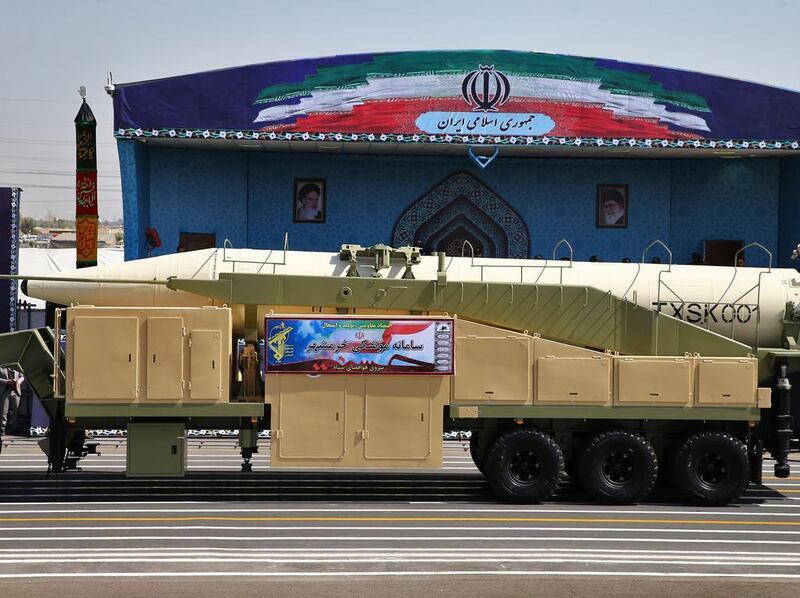Donald Trump's first State of the Union address coincided roughly with the one-month mark since the beginning of the anti-regime uprisings in Iran. Under Mr Trump's predecessor, the US had remained silent as thousands of Iranians protested in 2009. This time, Mr Trump vowed, "America stands with the people of Iran in their courageous struggle for freedom". And though this may seem counterintuitive, standing with the ordinary men and women who have been reduced to penury by their "criminal dictatorship" requires, as Mr Trump pointed out, addressing the "fundamental flaws" in the Iran nuclear deal.
The deal, compromised from the start, made major concessions in the hope that allowing Iran to re-enter the international community would moderate the behaviour of its government and help its people. What the deal has in reality done is enrich the regime. It is after the deal was struck in 2015 that Tehran multiplied its efforts to destabilise the region, while staging provocative ballistic missile tests at home.
To make matters worse, evidence of non-compliance with the deal has continued to accrue. Meanwhile, the wealth generated by the nuclear accords, never percolated down to the people of Iran. Once promoted as a means to an end, the deal has since its signing become, particularly to its European champions, a sacred end in itself. The US, on the other hand, is adopting an approach that takes into account Iran's actions. Last week, Nikki Haley, the US ambassador to the United Nations, showed her counterparts on the UN security council remnants of the Houthi-launched Iranian missile that struck Saudi Arabia in December and warned that the US would withdraw from the deal unless there is a concerted effort to crack down on Iran's missile programme.
All of this signals the emergence of a new approach that places the actual security of the region above the sanctity of the deal. If the accord is to survive, it must be revised and reformed. What we need, as Sheikh Abdullah Bin Zayed, the UAE's Minister for Foreign Affairs and International Cooperation, explained recently in the Financial Times, "is a new accord", which achieves three things. First, it must tackle Iran's ability to fund extremism. Second, it must reduce the regime's destructive capability and finally, it must limit Tehran's missile programme. In doing so, he outlined a blueprint for a nuclear deal 2.0.
Follow The National's Opinion section on Twitter





